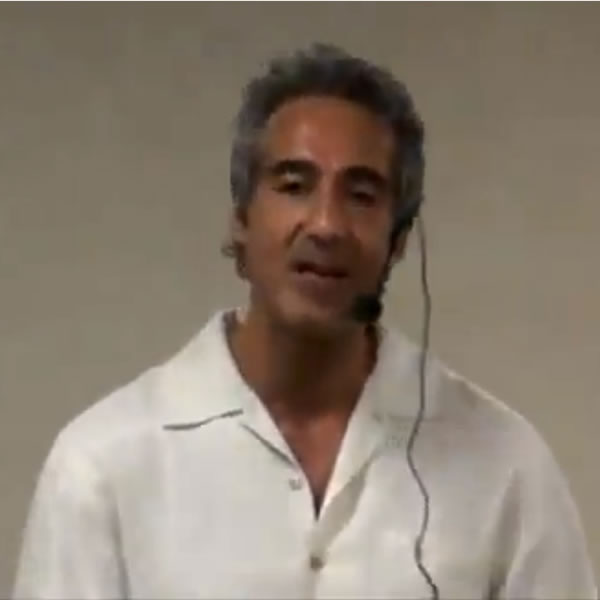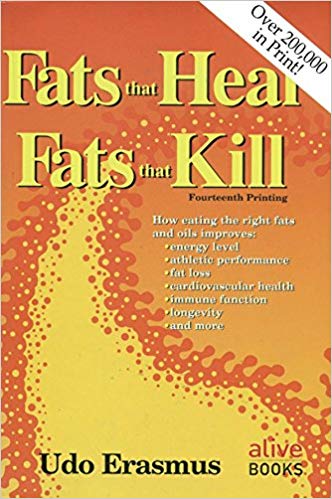
Photo by Brodie Vissers from Burst
By Ben Fuchs | PharmacistBen
Rosacea is a distressing and psychologically debilitating skin condition that affects an astounding 16 million or 5 percent of Americans. If you believe recent reports from the National Rosacea Society (NRS), the figures may be even worse. In a Harvard Medical School study, NRS researchers found a prevalence rate for rosacea of 16 percent in Caucasian women and an overall rosacea incidence of nearly 10 percent ina total population that also included Hispanics, African-Americans, Asians, and Indians.
Rosacea, a Latin term that can be defined as “rose-colored”, shows up as redness on the cheeks and nasal area, although it sometimes involves oily skin, at which point it acquires the moniker “seborrhea”. In some especially unfortunate patients, blemishes and pustules can form and the skin around the nose can become thickened. Even more disturbing is rosacea that affects the eye, a condition that can result in ocular dryness, grittiness, and a burning sensation. Still, despite its appearance, rosacea is best thought of not as a skin or eye problem, but rather as a circulatory one. This should be obvious, as the dilated blood vessels that are the featured characteristic of the rosacea patient, are located, not on top of the skin, but rather in the blood vessels located in the deeper tissues below.
Still, dermatologists and estheticians, as well as their patients, address the surface of the skin as the main target of therapies to alleviate the distressing ruddiness of rosacea. If you go to a skin care professional to treat the condition, more than likely, you’re going to leave with a prescription or suggestion for a topical cream or lotion, most often an antibiotic and occasionally an anti-inflammatory steroid. Sometimes laser therapy is suggested and occasionally exfoliation and skin peels are used. Recently, a pharmaceutical company called Foamix announced, with great fanfare, the results of a study on a new product called FMX 103, that showed a “statistically significant” reduction in lesions and pustules of rosacea patients. FMX 103 is a patented foaming, retooled version of minocycline, an old-time antibiotic that has been used to treat various skin conditions for 50 years.
The problem with the use of topical treatments for rosacea is that they, like most medical interventions, do not deal with the causes of the condition. Because the disease involves internal biochemical breakdowns, not addressing these internal mechanisms that lead to the sur-face symptomology can have ramifications for the patient’s future health. Some non-dermatological health issues that can develop in the rosacea patient over time include allergies, respiratory diseases, gastroesophageal reflux disease (GERD), diabetes, urogenital diseases, and female hormone imbalances. Other recent studies have found increased risks of inflammatory bowel disease and brain cancer. Recently, according to an article published in the journal “The Dermatologist”, researchers announced that individuals with rosacea are at greater risk for dementia and Alzheimer disease.
Because rosacea involves blood vessel dilation, a red flag indicator for blood-borne toxicity, the first place to look for a cause is the digestive tract. Unless substances are injected or otherwise enter into the circulation through the skin (as in through wounds or burns), the intestine is always the likely port of entry into the blood, as one of its major roles of the intestine is to effectively facilitate the movement of substances into the circulation. Significantly, as all rosacea pates know, the flushing that is associated with the condition can be dramatically increased by the ingestion of certain substances, including tea, coffee, alcohol, dairy, legumes, grains, and spicy meals.
Thus the most important anti-rosacea strategy is to look for digestive allergies or intolerances and eliminate problem foods. Caloric restriction and fasting can reduce the burden on the intestine and may also be helpful. Use probiotics and fermented foods to restore intestinal bacterial flora (interestingly, the anti-biotics so often used to address rosacea can have negatively impact gut bacteria). Because rosacea can be linked to low stomach acid, use apple cider vinegar, betaine HCL and perhaps prescribed hydrochloric acid drops (available through compounding pharmacies) before meals. Beginning meals with bitter substances like radishes, arugula or dandelion greens can improve secretion of digestive juices.
Other ideas for the rosacea patient:
Avoid refined sugars and carbs, they exacerbate inflammation and can stimulate the production of skin oils.
Because emotional stress can cause inflammation and induce vasodilation, use relaxation strategies, massage, deep breathing techniques and hot baths can be especially useful.
Hyperbaric oxygen therapy (HBOT), a procedure which utilizes a special chamber to drive high-pressure oxygen into the blood might help. Dr. Julian Whitaker, MD reported that one of his patients cleared up her rosacea after one HBOT session. According to a June 1972 article published in the British Journal of Dermatology, in 6 separate dermatological cases in which previous methods of therapy were unsatisfactory, HBOT treatment led to successful outcomes. Many hospitals have hyperbaric oxygen chambers that are available to the public and independent treatment centers can be found in most big cities.
Vitamin B2 (riboflavin) supplements may be helpful. A March 1943 paper published in the British Journal of Ophthalmology found that 32 of 36 patients dealing with rosacea of the eye “had prompt healing of the corneal lesions -usually within four days.”. Try 100-200 mg of riboflavin daily taken with the entire B-complex.


 That’s why, in the world of toxic pharmaceutical drugs, among the worst, are drugs that suppress the immune system. The medical community loves these drugs as many of the health challenges patients face today involve excessive immune activity, misdirected immune action or inflammation which can be regarded as the obvious manifestations of the immune system. Prednisone, and its derivatives, has long been a mainstay of treatment for immune based disease states. Many drugs for asthma and rheumatoid arthritis are likewise immune suppressants. And just last week, a study appeared in the journal
That’s why, in the world of toxic pharmaceutical drugs, among the worst, are drugs that suppress the immune system. The medical community loves these drugs as many of the health challenges patients face today involve excessive immune activity, misdirected immune action or inflammation which can be regarded as the obvious manifestations of the immune system. Prednisone, and its derivatives, has long been a mainstay of treatment for immune based disease states. Many drugs for asthma and rheumatoid arthritis are likewise immune suppressants. And just last week, a study appeared in the journal  No problem! The immune system kicks in, destroys the germs and viruses, and walls off the splinter and seals the wound. If it happens to miss something which it does occasionally, no problem. The immune system kicks in with a second phase of activity and you may see some inflammation and pus which is nothing more than evidence of a functioning immune system. Every day we swallow and inhale many thousands of germs and viruses and toxins and pollutants and these too are destroyed by the immune system. In the unlikely event a germ or virus gets through, we catch a cold or the flu or some kind of infection and once again this is nothing more than evidence that the immune system is doing its job in a kind of phase two fashion. Most of the time it will eventually it takes care of the infection and we’ll get over our cold or flu or whatever.You see folks this defense mechanism we call the immune system is charged with healing the body from many of the assaults that we turn to doctors and drugs to treat. The immune system is responsible for fighting colds flues, infections, sinusitis, sore throats, bacteria, viruses even cancers. And my friends that is without needing doctors appointments, emergency room visits, insurance companies or anti-bionics. The immune system simply needs to be cultivated with good nutritional and health practices. If you’re one of those folks that seems to get sick every time there’s a “bug’ going around or if you’re paranoid about touching door handles or that neighbor or employee in the next cubicle with sneezy, runny nose or hacking cough, the bright side is you no longer have to be concerned. If it’s taking you two or three rounds of different more potent antibiotic to get rid of a cold that used to be gone after one round or if you’re even thinking about getting the flu vaccine, the bright side is you’re no longer going to need a shot OR antibiotics. If you’re kids are getting chronic ear infections, sore throats or stomach flu, the bright side is that can all be put behind you. Sure there is a time and a place for anti biotic medicine and heroic intervention and as a pharmacist I am well versed in the importance of emergency medicine or the miracles provided by anti biotic treatment. Antibiotics have saved countless millions of lives in last 80 years and if you have a nasty pneumonia or staph infection there’s no better way to treat it than with a couple weeks of penicillin or Cipro. The debate is not about the importance of antibiotics, it’s about our dependence on them. You see, the trick to wellness is to support the immune system so our bodies don’t reach the point where we need the anti-biotics. You see what I’m saying? Our immune system, when it’s strong and vital should be able to take care of most common bacteria and viruses.. so the trick here is to commit ourselves to lifestyle choices that support our bodies abilities to withstand these assaults. To support our immune systems with our choices and habits so that they are robust and vigorous and perform their divinely mandated role of defending our cells and tissues and organs. So they can defend us. But in order to make appropriate choices we first have to understand we we’re dealing with here. So lets talk a little bit about the immune system.The immune system simple put is the defense department of the body charged with protecting us from invaders from and from within. The immune system is everywhere in the body , it’s not localized to one part of the body or one organ system, but rather it is composed of billions of specialized cells that float around throughout the body especially in the skin, nostrils, lungs, digestive tract and the linings of our internal organs. Some cells float around as patrolling soldiers others stand guard in the linings of our blood vessels and organs. Mucous plays a critical role in the functioning of the immune system, by trapping and blocking the effects of dust, allergens, bacteria, viruses and other invaders. The skin is one of the most important components of the immune system and in a way you could even refer to the skin itself as an immune organ. Many so-called skin diseases like psoriasis, eczema, rashes and even many instances of acne are really nothing more than the activation of the skins immune response. And by immune response, I simply mean a defense response, sort of like those sirens that go off when a city is being attacked by enemy bombs.
No problem! The immune system kicks in, destroys the germs and viruses, and walls off the splinter and seals the wound. If it happens to miss something which it does occasionally, no problem. The immune system kicks in with a second phase of activity and you may see some inflammation and pus which is nothing more than evidence of a functioning immune system. Every day we swallow and inhale many thousands of germs and viruses and toxins and pollutants and these too are destroyed by the immune system. In the unlikely event a germ or virus gets through, we catch a cold or the flu or some kind of infection and once again this is nothing more than evidence that the immune system is doing its job in a kind of phase two fashion. Most of the time it will eventually it takes care of the infection and we’ll get over our cold or flu or whatever.You see folks this defense mechanism we call the immune system is charged with healing the body from many of the assaults that we turn to doctors and drugs to treat. The immune system is responsible for fighting colds flues, infections, sinusitis, sore throats, bacteria, viruses even cancers. And my friends that is without needing doctors appointments, emergency room visits, insurance companies or anti-bionics. The immune system simply needs to be cultivated with good nutritional and health practices. If you’re one of those folks that seems to get sick every time there’s a “bug’ going around or if you’re paranoid about touching door handles or that neighbor or employee in the next cubicle with sneezy, runny nose or hacking cough, the bright side is you no longer have to be concerned. If it’s taking you two or three rounds of different more potent antibiotic to get rid of a cold that used to be gone after one round or if you’re even thinking about getting the flu vaccine, the bright side is you’re no longer going to need a shot OR antibiotics. If you’re kids are getting chronic ear infections, sore throats or stomach flu, the bright side is that can all be put behind you. Sure there is a time and a place for anti biotic medicine and heroic intervention and as a pharmacist I am well versed in the importance of emergency medicine or the miracles provided by anti biotic treatment. Antibiotics have saved countless millions of lives in last 80 years and if you have a nasty pneumonia or staph infection there’s no better way to treat it than with a couple weeks of penicillin or Cipro. The debate is not about the importance of antibiotics, it’s about our dependence on them. You see, the trick to wellness is to support the immune system so our bodies don’t reach the point where we need the anti-biotics. You see what I’m saying? Our immune system, when it’s strong and vital should be able to take care of most common bacteria and viruses.. so the trick here is to commit ourselves to lifestyle choices that support our bodies abilities to withstand these assaults. To support our immune systems with our choices and habits so that they are robust and vigorous and perform their divinely mandated role of defending our cells and tissues and organs. So they can defend us. But in order to make appropriate choices we first have to understand we we’re dealing with here. So lets talk a little bit about the immune system.The immune system simple put is the defense department of the body charged with protecting us from invaders from and from within. The immune system is everywhere in the body , it’s not localized to one part of the body or one organ system, but rather it is composed of billions of specialized cells that float around throughout the body especially in the skin, nostrils, lungs, digestive tract and the linings of our internal organs. Some cells float around as patrolling soldiers others stand guard in the linings of our blood vessels and organs. Mucous plays a critical role in the functioning of the immune system, by trapping and blocking the effects of dust, allergens, bacteria, viruses and other invaders. The skin is one of the most important components of the immune system and in a way you could even refer to the skin itself as an immune organ. Many so-called skin diseases like psoriasis, eczema, rashes and even many instances of acne are really nothing more than the activation of the skins immune response. And by immune response, I simply mean a defense response, sort of like those sirens that go off when a city is being attacked by enemy bombs.







